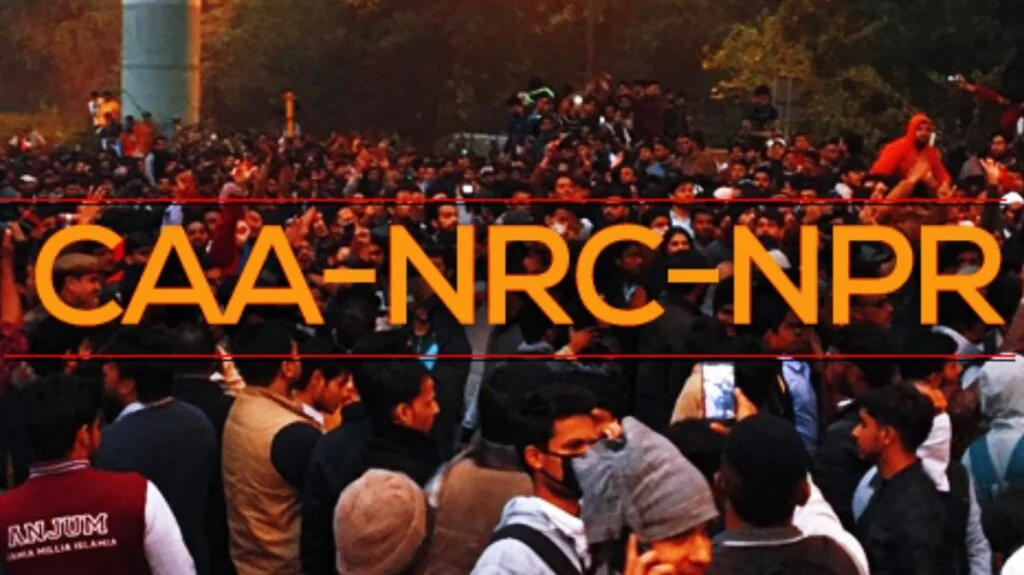On March 15, the Supreme Court of India agreed to hear a bunch of pleas seeking a stay on Citizenship Amendment Act (CAA) rules on March 19. Over two hundred petitions have been filed in the apex court since 2019, challenging various provisions of the Citizenship Amendment Act.
As CAA has been notified,Opposition parties have expressed concern about this, and America also says it’sworried. However, Home Minister Amit Shah has clarified that there is no provision in CAA to snatch anyone’s citizenship. The US on Thursday said it is concerned about the notification of CAAin India and is closely monitoring its implementation.
The Union government implemented the CAA-2019, paving the way for granting citizenship to non-Muslim immigrants from Pakistan, Bangladesh and Afghanistan who came to India before December 31, 2014. The government says Indian Muslims do not need to worry about the CAA, as this law has nothing to do with Indian Muslims and they have the same rights as their counterpart Hindu Indian citizens.
But, on May 1, 2019, Amit Shah in a public rally had announced the chronology of the Citizenship Amendment Act preceding the controversial National Register of Citizens (NRC) by design, and tweeted, “First we will pass the Citizenship Amendment Bill and ensure that all the refugees from the neighbouring nations get the Indian citizenship. After that NRC will be made and we will detect and deport every infiltrator from our motherland.”
After the notification of rules for the implementation of CAA, the UN, the US, and Amnesty International have criticized it strongly, saying that the law is fundamentally discriminatory. A spokesperson of the Office of the UN High Commissioner for Human Rights told Reuters, “As we said in 2019, we are concerned that CAA is fundamentally discriminatory in nature and in breach of India’s international human rights obligations.”
“We are concerned about the notification of CAA on March 11. We are closely monitoring how this act will be implemented,” a US State Department spokesperson told Reuters separately. “Respect for religious freedom and equal treatment under the law for all communities are fundamental democratic principles,” the spokesperson added.
According to Amnesty International, the operationalisation of CAA is a blow to the Indian constitutional values of equality and religious non-discrimination and is inconsistent and incompatible with India’s international human rights obligations.
Sanjay Hegde, senior Supreme Court Lawyer who had headed mediation team set up by the Supreme Court to hold talks with the Shaheen Bagh protesters, said, “The challenge to the CAA is largely a challenge based on Article 14 which provides for all, equality before the law and assures them of its equal protection. Reasonable classification is not prohibited as long as there is a nexus with the object of that classification. If CAA has the object of offering the protection of citizenship, to those fleeing persecution in neighbouring countries, there is no nexus between the religion of the refugee and the offer of protection. If the government says, we want to protect only followers of some religions but not others, the court will ask for the basis of such exclusion.”
“It is totally unconstitutional because it is discriminatory on many counts. It discriminates on the basis of religion as it excludes Muslims. It also discriminates on the basis of region as it does not include Myanmar and Sri Lanka. It also discriminates on the basis of only religious persecution and does not consider ethnic persecution and many others,” said another senior lawyer Prashant Bhushan.
According to Dipankar Bhattacharya, national general secretary of CPI-Liberation, “I think this is patently unconstitutional in the sense that it violates the secular principles of citizenship in the constitution. It interferes in religion through the back door in deciding citizenship. I think it is very discriminatory, absurd and irrational because even if we are to grant citizenship to people persecuted in the neighboring countries, religious persecution is not the sole parameter of persecution.”
He added, “Even Muslims are also persecuted in some of the neighboring countries.And then you have Sri Lanka, Myanmar where Rohingyas are the most persecuted lot next to Palestinians. And Tamil Hindus as well as Muslims have been prosecuted in Sri Lanka. So if it is about protecting people facing persecution, it should not be limited to just three countries and six religions. It should be regardless of religion and extended to all countries.”
On the ongoing debate on CAA conspiracy, Dipankar said, “Amit Shah famously explains CAA is not a stand-alone legislation. It is just a precursor to NRC. We have seen in Assam what NRC really means. So there are two exercises in NRC. First 4 million people are excluded then 1.9 million are excluded cutting across religious and linguistic communities, basically poor people and people without adequate documentation. So,it’s just a conspiracy to strip people of [right to] citizenship and disrupt lives in a big way.”


